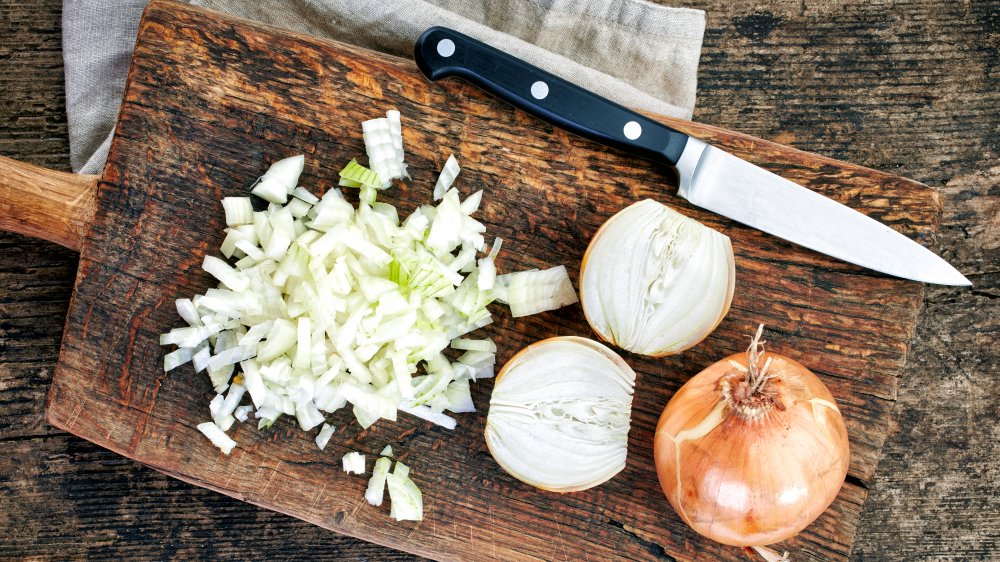Jamie Oliver's Onion Trick Is A Game Changer
Eat onions "because they add flavor without salt and sugar," nutritionist Victoria Jarzabkowski told Live Science. Eat onions because when you do, you're literally biting into a piece of history. Carved into the 4,000-year-old clay tablets of the world's oldest cookbooks is a Babylonian obsession with — per French Assyriologist and gourmet cook, Jean Bottero — "every member of the onion family" (via BBC). Or, eat onions because Jamie Oliver recommends it, and Jamie Oliver knows what he's talking about.
When you prepare the onions that you'll be sautéing for sauces and mincing for soups, and cubing for tuna salad sandwiches, you typically wash them first. Remember, you'll be cutting through them with a knife that can drag that bacteria onto the onion's meat — although, according to MyRecipes this isn't a completely necessary step. Whether or not you choose to take this precaution, you'll definitely want to wash them after peeling and slicing. That's a trick that Jamie Oliver tweeted about while preparing prawn and tuna linguine with the celebrity Italian cook, Nonna (i.e. "grandma") Rosanna.
If you're not washing your onions, your doing it wrong
But why? For one, never mess with Italian grandmothers and their kitchens. And for two, according to Oliver, washing sliced onions makes them "milder, and that moisture also helps to add extra sweetness as they cook!"
There's a reason this works, of course. It goes like this: Onions are filled with sulfuric compounds that contain the thiosulfinates responsible for the vegetable's flavor and odor profiles (via Food Crumbles). But those compounds are only released when you cut into the onion. When you do, you are activating its sulfur-based defense system that repels the insects and animals that might otherwise eat them into extinction (via The New York Times). By washing the sulfur away from the onion's broken cells, you effectively eliminate a lot of the unpleasant bitterness and sting associated with it, leaving the vegetable more "mellow" and "aromatic" (via Bon Appetit).
Like we said, this trick is a game-changer.

